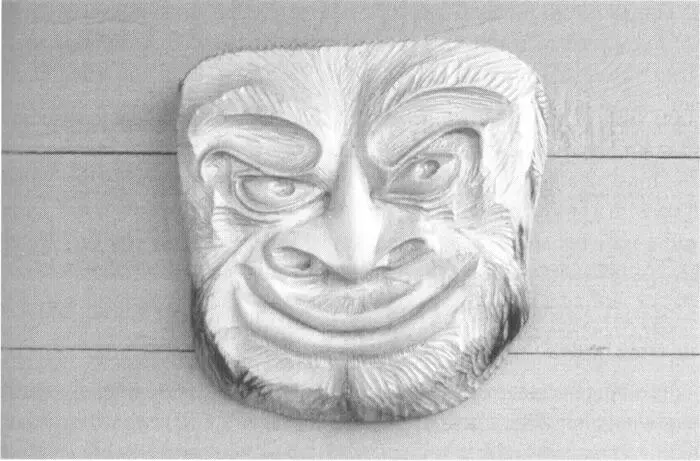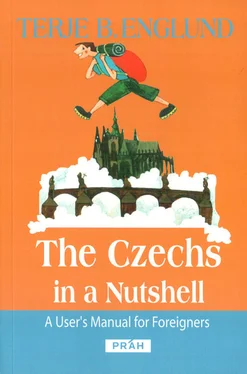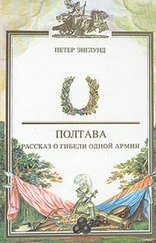
Photo © Jaroslav Fišer
Thus, the communists quite unwillingly contributed more to the development of ordinary people’s handiness, creativity and ingenious improvisation than any other rulers in their turbulent history.
However, the widespread conviction that all (male) Czechs are equipped with golden hands has led to one rather unfortunate phenomenon: this country boasts an incredible number of self-proclaimed experts. For instance, when Austrianspecialists some years ago warned that the cooling system of the newly erected Temelín nuclear power plant might be unsafe, thousands of Czech kutils brushed the warnings off angrily, because they had all installed “something similar” in their kitchens, and it had worked perfectly!
The author Ondřej Sekora aptly describes this feature in his immensely popular children’s books about Ferdinand the Ant, whose clumsy companion, Pytlík the Beetle, “knows everything and understands everything, because he has seen it all in cinema” (see: Klaus, Václav). In the real Czech world, however, millions of kutils know everything and understand everything because they have managed to fix a leaking sink.
Take Tom Jones and mix him with Enrico Caruso, the Italian tenor-cum-castrato singer. Then add tons of pathetic love songs, faked sexappeal and musical kleptomania focusing on Western hits from the 1970s. Spice it up with a political flexibility rare even for Central Europeanstandards and a personal status close to that of the Pope. What do you get? Karel Gott, Czech pop music’s most mega-super, long-lasting and brightest star.
As his very name (which is not faked!) indicates, Gott was predestined to become a god from his birth in 1939.
His unique career as a singer started in the early 1960s when Gott still was a pimpled electrician’s apprentice at Prague’s ČKD engineering factory. After surprisingly winning several talent competitions, he made an astonishing breakthrough at the legendary Semafor Theatre in 1963. Virtually overnight, an unknown, 24-year-old electrician from Plzeň had become Czechoslovakia’s leading pop star, who later also performed in some of Czech cinema’s most popular films ever.
So far, so good — nobody has ever disputed Gott’s talents or his hard work, and in the 1960s, he definitely deserved the people’s admiration, which reached a peak during the Prague Spring’s euphoria (see: Communism).
A bit more disputed, though, is his behaviour after Czechoslovakia was invaded, in 1968, and the Russian-backed Husák regime launched its neo-Stalinist normalization . Gott’s first reaction was to emigrate, but after a few months in German exile, he returned to the mother country, where he energetically pursued his career further. After all, life went on for bus-drivers, plumbers and doctors, so why shouldn’t it also go on for pop stars?
The price Gott paid for his success, however, was a very cosy relationship with the Bolsheviks. Too cosy, lots of critics would say. When the Husák regime, in 1977, launched its rabid attack on Charter 77in the form of the infamous Anti-Charterpetition that cried for the protection of “socialist law and order”, Karel Gott was the very man for the job of reading the proclamation when it was broadcast live on TV. As expected, Gott was soon thereafter awarded with the state title “National Artist”, the Communist equivalent of a knighthood from the Queen, and the official media presented photos of a pop star who smiled so sweetly at Comrade President that one almost got the impression that the two of them were registered partners.
There seems to have existed an unwritten contract between Karel Gott and the communist regime. Its essence can be described as follows: by churning out millions of records with “optimistic” and “positive” music, the pop star helped to cement the shameful lie that the neo-Stalinist comrades were normal rulers just as in any other normal country. The communists, for their part, could finally boast a pop star with the same reputation and calibre as those in the West, from where he, without any inhibitions, “borrowed” many of his biggest hits.
Thanks to this pragmatic symbiosis, Karel Gott managed to defend his position as the very icon of Czechoslovak pop culture for an incredible period of 30 years. Not that people seemed to mind. In a society as stagnant as Czechoslovakia in the 1970s and 1980s, time went so slowly that one could get the impression that it almost had stopped.
The truly amazing thing, however, is that Karel Gott managed to survive the Velvet Revolution. More than that, on Wenceslas Square in November 1989, thousands of Czechs heard him sing the National anthem together with artists who had been banned for almost 20 years. Karel the collaborationist had suddenly been transformed into Karel the convinced democrat! Those who found this miracle a bit too stiff were quickly silenced. The new democratic leaders were also eager to use the pop-star’s popularity to promote national unity and, not to be forgotten, their own political goals.
So, instead of applying for retirement together with his Bolshevik protectors, Karel Gott is still, 40 years after his breakthrough, the unrivalled king of Czech pop music.
True, neither dyed hair, an imposing number of face-lifts, nor an army of young mistresses can hide the fact that the Maestro, Elvis Presley’s junior by only four years, is getting older. And even though his repertoire has been slightly refreshed (his former svazácko-vekslácké hity — tunes that were politically correct enough to please the regime, but rough enough to please the baddies from the black money market — have been replaced by a Tom Jones-like sound), music critics still accuse him of degenerating common people’s taste.
Yet no show at the immensely popular TV Nova, no gala-concert or national beauty contestis imaginable without Karel Gott’s participation. Otherwise serious newspapers present interviews with him every other week, and the pop star is happy to demonstrate his newly-discovered talents as painter and political commentator (“ Jewsand freemasons are ruling the world”).
Logically, when Maestro Gott some years ago, after an especially cruel critic had compared him to “a zombie who causes acute depression to innocent radio listeners”, decided to stop performing in protest, the situation was considered so grave that the Minister of Culture himself went to console the deeply insulted star.
Could this have happened in another country? Hardly. Both Tom Jones and Julio Iglesias have, admittedly, accomplished a kind of comeback, but neither of them would be voted their countries’ most popular singer, as Gott is almost every year. Old stars such as Uriah Heep or Alla Pugachova are still worshipped by fans in their home countries, but most people consider them to be marginal acts or living fossils. So what’s the explanation for Karel Gott’s indestructible popularity?
Clever marketing undoubtedly plays an important role. Take, for instance, Maestro Karel’s habit of kicking out a blond, 19-year-old mistress a couple of weeks before his latest CD is to be launched. Usually, the media instantly swallow the bait, with the result that the often-negative reviews of his mediocre music are completely drowned in the bombastic gossip about his sexual escapades. What’s more, it’s no secret that Gott is dosely connected to the small group of people who have run the Czech music business for the last 35 years (he has himself been called the “Gott-father”). As any other local businessman, Gott takes the advantage of a combination of lowbrow media and an un-transparent business climate (see: Balkans; Personal Connections).
Читать дальше









![Theresa Cheung - The Dream Dictionary from A to Z [Revised edition] - The Ultimate A–Z to Interpret the Secrets of Your Dreams](/books/692092/theresa-cheung-the-dream-dictionary-from-a-to-z-r-thumb.webp)



